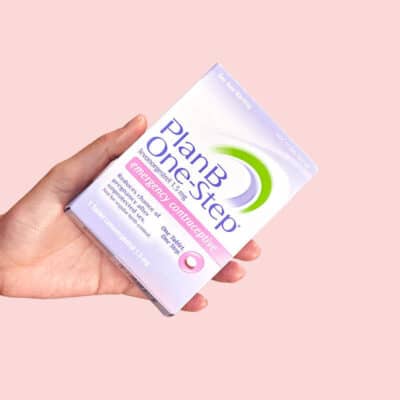Overturning Roe Has Birth Control and Emergency Contraceptives in High Demand

WASHINGTON — In the wake of the Supreme Court’s decision in Dobbs v. Jackson Women’s Health Organization, which overturned Roe v. Wade, demand for various forms of contraceptives, including the so-called morning-after pill, and long-lasting forms of birth control, has surged.
Doctors, women’s health clinics and online pharmaceutical companies such as Nurx, which prescribes birth control along with other medications, have seen a marked increase — by some estimates as much as 300% — for different types of contraception.
And some national pharmacy chains, such as CVS and Rite Aid, have begun limiting the number of morning-after pills customers may purchase per transaction to avoid a shortage.
At Rite Aid, customers are limited to three pills per order of the Plan B and Option 2 brand pills, according to its website.
Walgreens has also placed some restrictions on the amount of product per transaction.
“We continue to have ample supply to meet customer demand. To help ensure ongoing access and availability for our customers and patients, we have implemented a purchase limit of 15 products per customer for Walgreens.com purchases only,” a spokesperson for the chain said in an email to The Well News.
Favor, formerly The Pill Club, was founded in 2016 with the goal of making women’s health care more accessible.
After a free online consultation, women are advised on what type of birth control method may be right for them. According to the company, roughly 69% of its customers are under 30, and most who use its website say they value the confidentiality of its processes and the reliability of its service.
“Women already face enough barriers to getting the care they deserve, and we believe that getting their birth control and the many other services we provide should be as easy as getting [them] in the mail,” said Chelsea Kohler, Favor’s chief marketing officer in an email to The Well News.
Kohler said Favor prepared for the spike in demand in birth control ahead of the Supreme Court’s ruling, and within 72 hours of its release saw a 5,000%+ jump in orders of emergency contraceptives or morning-after pills.
“Birth control and the morning-after pill have been our focus for six years, so we are more than ready to meet this moment,” Kohler said.
“We allow patients to purchase up to 10 boxes of emergency contraception at a time, as we’re confident we can keep up with the demand at this time. Our main supplier has shared that they don’t foresee any issues keeping pace with increased demand,” she said.
Planned Parenthood has also seen an increase in emergency contraceptive and birth control demand since the overturning of Roe.
“On June 24 — the day the Supreme Court overturned Roe — scheduled appointments for non-IUD birth control increased by more than 150% and IUD appointments scheduled increased by more than 375%,” said Dr. Diana Contreras, in an email to The Well News.
Contreras, the chief health care officer at Planned Parenthood Federation of America and a certified ob-gyn, went on to say the federation’s sexual health advice chatbot fielded twice the normal amount of questions on birth control in the immediate aftermath of Dobbs.
Planned Parenthood also saw a 2,205% increase in website traffic on its pages on sterilization, and a 1,500% increase on pages related to vasectomy — an indicator that concerns raised by Dobbs are high among both men and women.
Planned Parenthood of Northern New England, which services clients in Vermont, Maine and New Hampshire, has also seen an increase in appointments regarding vasectomies and the placement of long-acting reversible contraception, like IUDs.
“Pre-decision, the average was about nine appointments per day, but post-decision it is at 14. For New Hampshire it was 7.5 pre-decision and 9.5 post. Maine was 5.5 pre-decision and nine post,” Eileen Sullivan, a spokeswoman for Planned Parenthood of Northern New England, wrote to The Well News in an email.
Kohler said the explosion of outreach to online sources of birth control and birth control information is entirely understandable.
“Before the Supreme Court issued their ruling in Dobbs, pharmacists in six states could already explicitly refuse to dispense [emergency contraception] based on their personal religious and moral beliefs,” she wrote.
“While some [emergency contraception is available without a prescription — it can be located behind the pharmacy counter, making it more challenging for patients to access,” Kohler continued.
Favor has even created a new website to provide the latest updates on ways to help different abortion funds and women who are most in need.
“Legislative attempts to limit abortion access are just the beginning of a renewed assault on reproductive care like birth control and the morning-after pill. In fact, we’re already starting to see deliberate attempts to repress access to care by conflating [emergency contraception] with medication abortion,” Kohler wrote.
Natalie can be reached at [email protected]

























